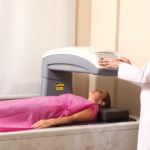In this time of COVID-19, you may be considering ways to deliver routine rheumatologic care via some form of telemedicine. Here are some of the legal considerations.


In this time of COVID-19, you may be considering ways to deliver routine rheumatologic care via some form of telemedicine. Here are some of the legal considerations.
Reuters Staff |
NEW YORK (Reuters Health)—High-intensity statins are associated with a lower risk of joint replacement, new findings show. “Statins at high intensity may reduce the risk of hip and knee replacement. The effect may be RA specific,” Dr. Aliya Sarmanova of the University of Nottingham, U.K., and colleagues write in Rheumatology.1 Statins have anti-inflammatory effects, and…
Megan Brooks |
NEW YORK (Reuters Health)—In daily clinical practice, following a treat-to-target (T2T) strategy in patients with rheumatoid arthritis (RA) leads to higher rates of remission compared with not following a T2T strategy, according to a longitudinal analysis of real world data. “The results of the analysis provide direct evidence that following T2T, and particularly sustained T2T,…

Randy Q. Cron, MD, PhD, & W. Winn Chatham, MD |
The new coronavirus outbreak, COVID-19, reminds us how we have struggled to keep ahead of mutating pathogens through the ages.

2019 Lupus Foundation of America Gary S. Gilkeson Career Development Awards Emily Smitherman, MD, assistant professor, pediatric rheumatology, University of Alabama at Birmingham, and Children’s of Alabama, one of four recipients of the Gary S. Gilkeson Career Development Awards, is interested in identifying predictors for differences in disease activity within the pediatric population. To accomplish…

ATLANTA—The increasing ease and the lowering cost of genome and exome sequencing make discovery and diagnosis of rare diseases more feasible than ever, but hurdles still need to be cleared before the world of medicine can fully harness the power of this information boom, experts said in a session at the 2019 ACR/ARP Annual Meeting….

ATLANTA—Osteoporosis in premenopausal women is uncommon compared with its frequency in post-menopausal women, but when it is suspected, it poses some difficult questions for clinicians: How should it be diagnosed in this understudied population? If found, should it be treated—and how? Elizabeth Shane, MD, professor of medicine at Columbia University and attending physician at New…

She wanted me to call in an antibiotic. My sister, a lawyer, often tells me how the ethics of her profession govern even her extra-professional acts. She feels that when she was sworn into the New York State bar, she lost the freedom to bend the truth. She would never, for example, attempt to smuggle…

Recent research into burnout in primary care providers has found many providers experience professional dissonance and cite increasing paperwork and undervaluation as contributors to burnout. The study also outlined solutions that may improve professional fulfillment…

The Medical Alumni Association at the University of Pittsburgh |
Editor’s note: It is with much sadness that we learned this morning that Paul Caplan, MD, passed away yesterday, March 7, 2020. “He was a remarkable person who continued to celebrate life up to the end,” says Terence W. Starz, MD, University of Pittsburgh School of Medicine. “He had a great caring, wisdom, and commitment…